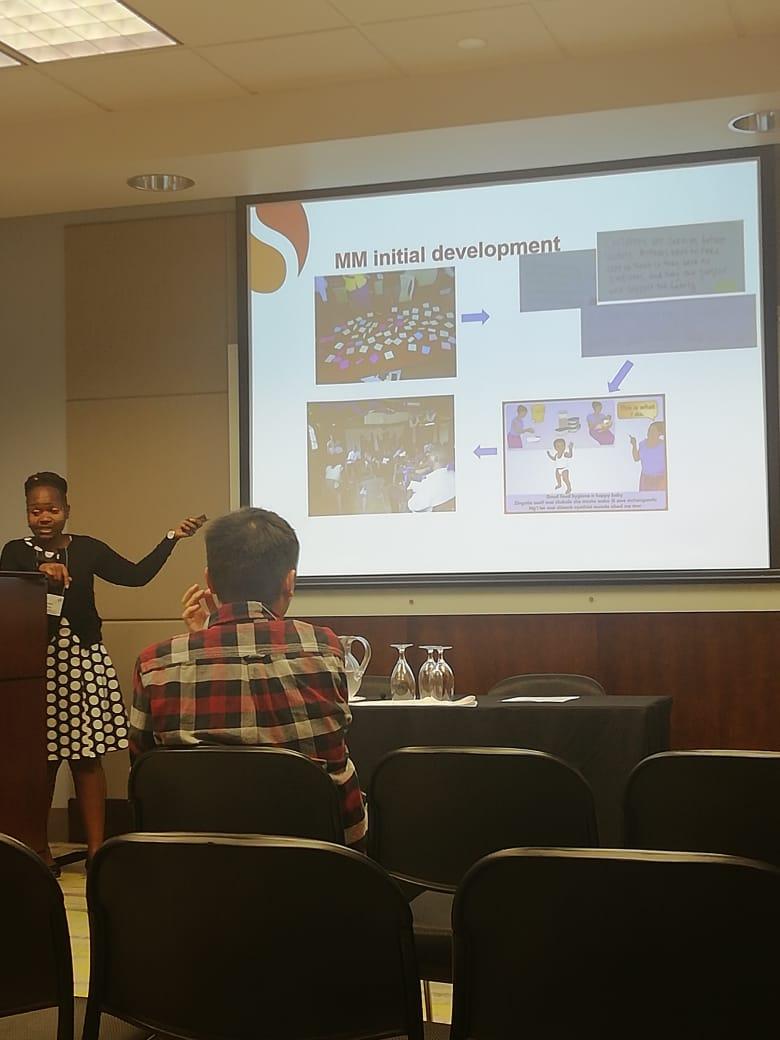Conference reflections from SHARE Research Fellows: Sheillah Simiyu

Our SHARE Research Fellows had a busy year in 2019 attending conferences. Two key conferences were UNC Water and Health and the American Society of Tropical Medicine and Hygiene Annual Meeting. In this series of blogs, the Research Fellows share their experiences of the conferences. Sheillah Simiyu, SHARE Research Fellow from Kenya reflects on the proceedings of the conferences.
The 2019 Water and Health Conference took place from 7-11th October at the Friday Center, University of North Carolina at Chapel Hill. The conference themes included WASH financing and markets, humanitarian WASH, evidence-based WASH, climate variability and water security and WASH and environmental health. The American Society on Tropical Medicine and Hygiene (ASTMH) took place from November 20-24th at the Gaylord National Resort and Convention Center, National Harbor, Maryland. Presentations were on a variety of topics. Comparing UNC and ASTMH, UNC was more WASH oriented and ASTMH was more focused on public health and/or tropical medicine.
I had two side events and a poster presentation at the UNC conference, and two side events at the ASTMH conference. Being my first time to attend both conferences, I had interesting experiences; some of which I will reflect on in this blog.
The first side event I participated in at UNC was titled “Why are we not talking about food? WASH policy implications of new evidence on foodborne health risks and novel interventions”. The second side event was titled “An agenda setting workshop for "limited" (shared) sanitation: user experiences, measurement, and improvement approaches”.
In the first session, I presented our Safe Start trial formative work, and other presenters also made their presentations on food hygiene. Immediately after was the session on shared sanitation. Our side event brought together early career researchers as panellists, each of whom presented a one slide presentation on user experiences, interventions and measurement and monitoring in 5 minutes. These researchers mainly reflected on work done in Kenya, Ghana, Zambia and Bangladesh. This elevator-pitch style format was really interesting as researchers had to be creative to summarise their work quickly and effectively.
For ASTMH, I had two side events. One was titled “Enteric pathogens in urban environments: understanding risks and managing exposures” and the second was titled “Food hygiene for public health: the state of the evidence on intervention design, implementation and evaluation”. In the first session on Thursday, I gave a presentation titled “Possible exposure to faecal pathogens among children in informal settlements of Kisumu, Kenya” which drew from results of the study we are currently implementing in Kenya and Ghana on shared sanitation. In the second session, I again presented results from the formative work of the Safe Start trial on designing the food hygiene intervention. I also had the opportunity to attend other sessions on WASH and health.
What did I like the most in these conferences?
I particularly enjoyed the interactions between participants after the presentations, which occurred through various questions being asked by the participants during and after the sessions. These questions not only demonstrated enthusiasm but also revealed that both presenters and attendees had done an excellent job in delivering their messages and attentively listening to the presentations respectively. The questions asked were both scientific and policy related; for example: ‘what next after the science?’, ‘how do we influence policy?’ and ‘how do we move from the results to action?’
I also had the opportunity to interact with participants from various countries, some of whom I ‘knew’ on paper (after reading their work) and others that I knew in person. Conferences are always a great avenue for researchers who work in different countries to meet!
During UNC, we had the privilege of receiving preliminary results on the Mapsan trial, where results showed little effect of the intervention on child health. My take is that these results should not be interpreted to mean that the intervention did not have any effect. There are other benefits of a sanitation intervention, for example, psycho-social and emotional well-being and an improvement on the overall quality of life.
There were other (sometimes unusual) details that made the conferences quite interesting. For example, the instant photo booth during UNC that enabled us to create memories, the ‘speaker room’ during ASTMH that enabled speakers to load their presentations beforehand and avoid the troubles of last minute loading of presentations, the interactive ASTMH conference mobile app and of course plenty of good food during UNC!
Would I recommend these conferences to other researchers? Definitely! Would I attend the conferences again? If funds are available, why not?
